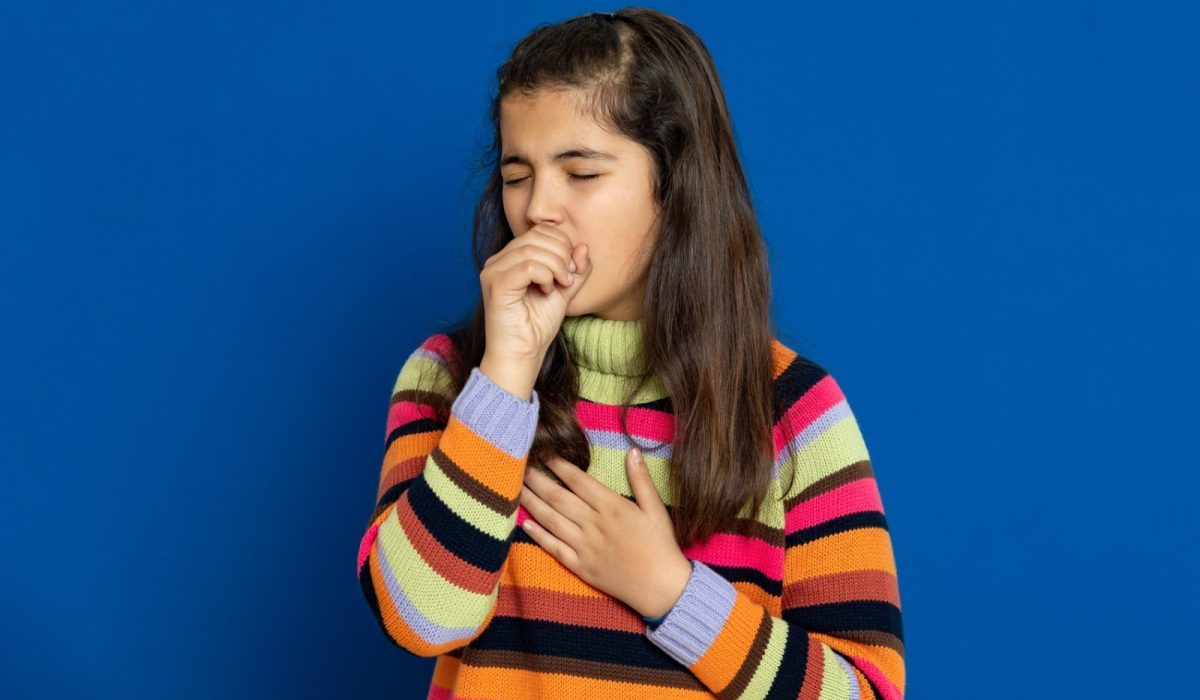It is an inflammation of the bronchial tubes (the airways that carry air to and from the lungs).
In most cases, bronchitis in children is mild and can be treated with rest, fluids, and over-the-counter medications.
Bronchitis is most common in children between the ages of 3 and 5, though adults can also be affected.
Symptoms of Bronchitis in Children
Bronchitis is an inflammation of the bronchial tubes, the airways that run from the trachea (windpipe) to the lungs.
Symptoms of bronchitis in children include:
- Persistent coughing (often with mucus or a wheezing sound)
- Chest discomfort or pain
- Shortness of breath
- Fatigue
- Low-grade fever
If a child is displaying any of these symptoms, consult a doctor.
Causes and Risk Factors of Bronchitis in Children
1. Respiratory Infections: Bronchitis in children can be caused by a variety of respiratory infections, including viruses, bacteria, and fungi. These infections often lead to inflammation and narrowing of the airways, resulting in coughing, wheezing, and difficulty breathing.
2. Air Pollution: Pollutants in the air, such as smoke and dust, can irritate the lungs and lead to bronchitis in children.
3. Allergens: Allergens, such as pollens, pet dander, and molds, can cause inflammation in the airways and lead to bronchitis in children.
4. Asthma: Asthma is a chronic condition that can lead to bronchitis in children. Asthma can cause the airways to become inflamed and narrowed, resulting in difficulty breathing.
5. Genetic Factors: Certain genetic factors, such as a family history of asthma or bronchitis, can increase a child’s risk of developing bronchitis.
6. Second-hand Smoke Exposure: Second-hand smoke is a major risk factor for bronchitis in children, as exposure to it can irritate the lungs and lead to inflammation.
7. Prematurity: Premature babies are more likely to develop bronchitis due to their weaker immune systems.
Diagnosis of Bronchitis in Children
Bronchitis in children is typically diagnosed with a physical examination and a series of tests, such as a chest X-ray, sputum culture, and blood tests.
Depending on the severity of the symptoms, a doctor may also order additional tests, such as a pulmonary function test or spirometry, to assess the child’s breathing.
In some cases, an allergy skin test may be performed to rule out asthma or an allergy-related condition. Additionally, the doctor will ask about the child’s medical history, family history, and any other symptoms that may be present.
Treatment of Bronchitis in Children
- Rest: Encourage the child to rest and get plenty of sleep.
- Liquids: Offer plenty of fluids such as water, juice, and soup to keep the child hydrated.
- Humidifier: Use a humidifier in the child’s bedroom to keep the air moist and prevent the airways from drying out.
- Over-the-counter medications: Medications such as ibuprofen or acetaminophen may be used to reduce fever and relieve chest discomfort.
- Inhaled bronchodilators: These medications can help open the airways to make breathing easier.
- If the child’s bronchitis is more severe or is caused by a bacterial infection, the doctor may prescribe antibiotics. In some cases, an inhaled corticosteroid may also be prescribed to reduce swelling in the airways.
Preventive Tips to Treat Bronchitis in Children
- Get your child vaccinated for the flu every year
- Help your child stay hydrated
- Teach your child to wash their hands often
- Consider using a humidifier in your child’s bedroom to help loosen and thin out mucus.
- Make sure your child avoids exposure to pollutants like smoke, dust, and other irritants.
- Monitor your child’s breathing and visit your doctor if the symptoms become worse.
Myth and Fact on Bronchitis in Children
Myth: Bronchitis in children is caused by cold weather.
Fact: Bronchitis in children is usually caused by a virus, such as influenza or the common cold, which is more likely to occur in cold weather.
Myth and Fact on Bronchitis in Children
Myth: Bronchitis in children is always contagious.
Fact: Bronchitis in children is not always contagious. Viral bronchitis is contagious, but bacterial bronchitis is not.
